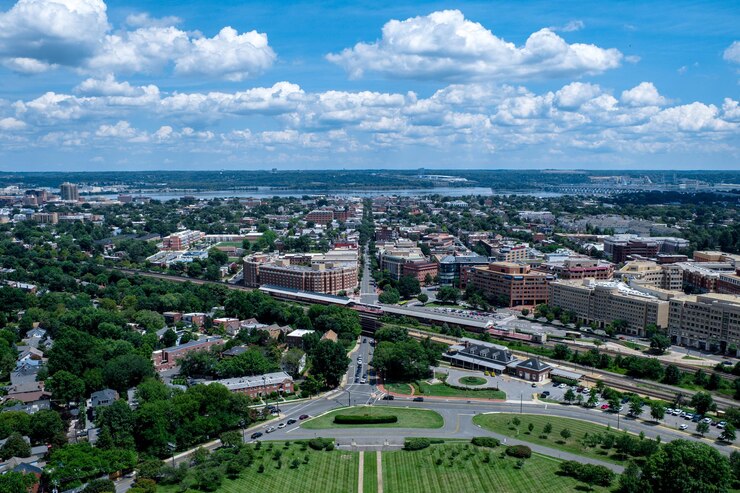Nebraska ambulance providers face mounting pressure from commercial payer denials averaging 28% while managing vast service areas across rural counties, creating cash flow challenges that threaten the sustainability of emergency medical services throughout the Cornhusker State.
Payer Mix Reality
Nebraska’s ambulance services operate within a diverse payer environment reflecting the state’s agricultural and urban divide. The current payer breakdown shows Medicare at 34%, Medicaid at 22%, commercial insurance at 31%, and self-pay at 13%. Blue Cross Blue Shield of Nebraska dominates with 48% market share, followed by UnitedHealthcare at 19% and Medica at 11%. Reimbursement rates vary dramatically: Medicare pays approximately $450 for BLS transports, while Nebraska Medicaid reimburses $210, creating significant revenue gaps. Commercial payers average $825 but implement aggressive prior authorization requirements. Collection rates tell a concerning story – providers collect only 38% of billed charges overall, with self-pay collections dropping to 18%. Rural services report even lower rates at 31% collected, impacted by agricultural economic cycles. The shift toward Medicare Advantage plans, now covering 41% of Medicare beneficiaries in Nebraska, introduces additional authorization complexities. Many agencies struggle with 90-day A/R exceeding 45% of total receivables, indicating systemic collection challenges requiring professional intervention.
State Medicaid & Compliance
Nebraska Medicaid, administered through three managed care organizations, presents unique billing challenges for ambulance providers. Current reimbursement stands at $210 for BLS and $385 for ALS services, with additional mileage reimbursement at $7.50 per loaded mile. The state enforces a 180-day timely filing limit, though MCOs may impose shorter deadlines. Nebraska’s No Surprises Act implementation requires detailed cost estimates for scheduled non-emergency transports, with specific notice requirements 72 hours before service. Prior authorization through the state’s Heritage Health program is mandatory for all non-emergency transports, requiring form MC-3 submission. The Nebraska Department of Health and Human Services updated requirements in January 2024, mandating electronic submission of all prior authorization requests through the MMIS portal. Documentation must include physician certification, detailed transport justification, and alternative transport consideration. Schedule a demo today—24-hour turnaround to navigate Nebraska’s complex Medicaid managed care requirements and ensure timely reimbursement.
Collection Laws
Nebraska’s medical debt collection framework balances creditor rights with consumer protections. The state adheres to federal FDCPA requirements while adding specific provisions: initial written notice must be sent within five days of first contact, and verbal communication is restricted to 8 AM – 9 PM Central Time. Nebraska permits wage garnishment for medical debt, but limits it to 15% of disposable income or the amount exceeding 30 times minimum wage, whichever is less. The statute of limitations for medical debt is four years from the date of last payment or written acknowledgment. Legislative Bill 305, effective 2023, prohibits reporting medical debt under $500 to credit bureaus and requires 90-day notice before initiating legal action. Ambulance services must offer payment arrangements for balances over $100, with terms extending at least six months. Collection agencies require Nebraska licensing through the Department of Banking and Finance. Harassment, including repeated calls within short periods, can result in $2,500 statutory damages plus attorney fees.
Case Study
In Grand Island, Central Nebraska Medical EMS transformed their revenue cycle by addressing chronic denial issues with commercial payers. The service, completing 11,000 annual transports across Hall County, faced 35% initial denial rates and 125-day average days in A/R. By implementing automated insurance verification and creating payer-specific billing workflows, they reduced denials to 19% within eight months. Their targeted approach to Blue Cross Blue Shield prior authorizations decreased medical necessity denials by 58%. Self-pay collections improved from $240,000 to $385,000 annually through early financial screening and community partnership programs. The streamlined process reduced staff overtime by 30% while increasing net collection rates from 42% to 54%, generating an additional $1.2 million in annual revenue.
Nebraska’s evolving healthcare landscape demands sophisticated approaches to EMS revenue management. Midwest Service Bureau’s healthcare solutions address the unique challenges facing Nebraska’s ambulance providers, from rural volunteer services to urban hospital-based operations. Nebraska EMS billing recovery requires understanding both state-specific regulations and local payer dynamics that impact collection success. Maintaining Nebraska ambulance debt compliance while maximizing recovery involves navigating managed care complexities and agricultural economic cycles affecting self-pay accounts. Our expertise in Nebraska emergency medical transport collections ensures your organization captures appropriate reimbursement while adhering to all regulatory requirements. As Nebraska surprise billing ambulance regulations continue evolving, staying current with compliance requirements protects your organization from penalties while optimizing patient satisfaction.
The Nebraska Department of Health and Human Services’ 2023 Statewide EMS Assessment revealed average statewide collection rates of 37%, with significant variation between urban (44%) and rural (29%) providers. Professional revenue cycle management can bridge these gaps while ensuring full regulatory compliance. Schedule a demo today—24-hour turnaround to enhance your Nebraska ambulance billing performance.
Midwest Service Bureau’s compliance guarantee ensures your collections meet all Nebraska requirements while maximizing appropriate reimbursement. Contact us at 316-263-1051 to discuss how we can improve your Nebraska EMS revenue cycle.





